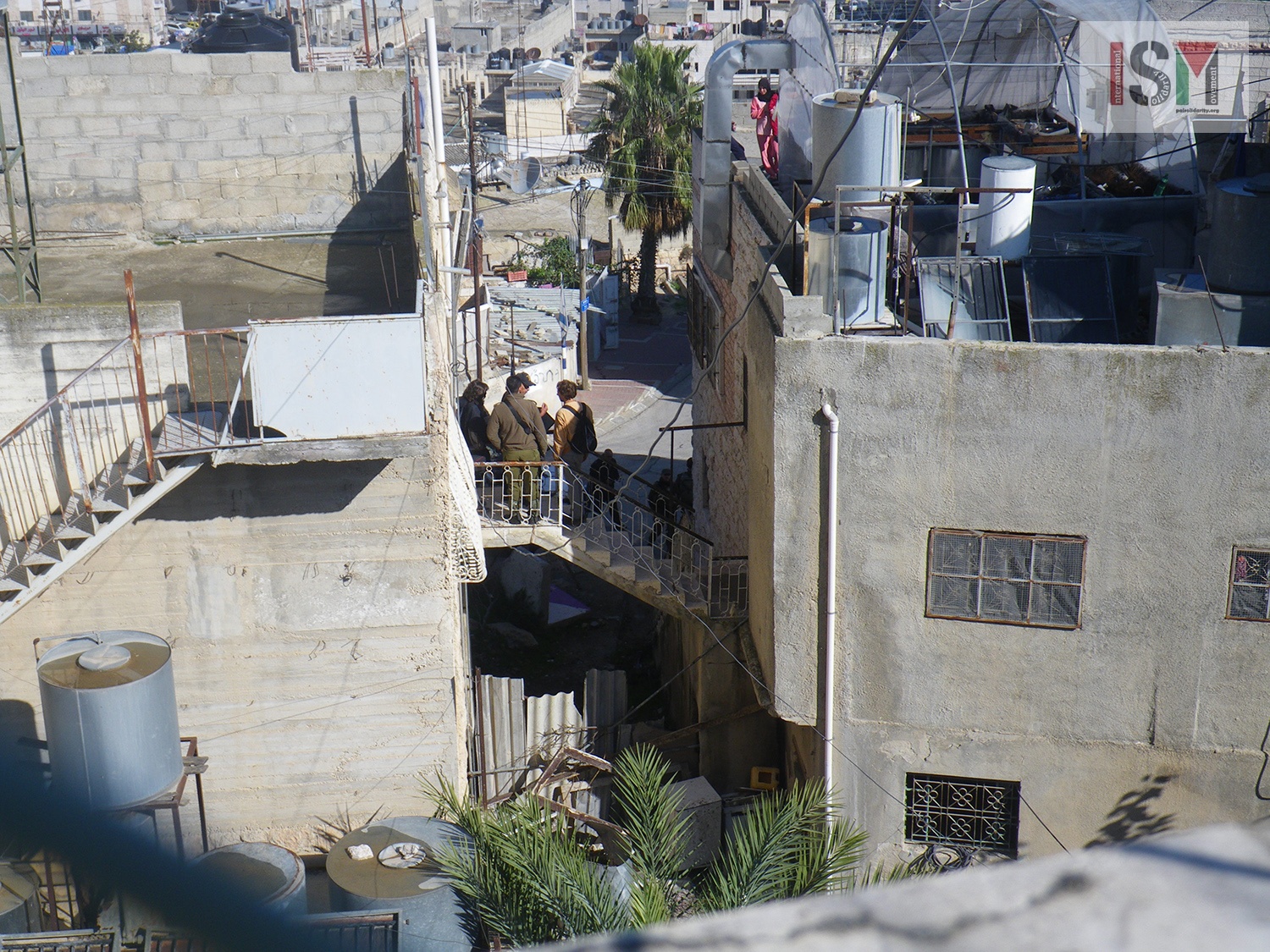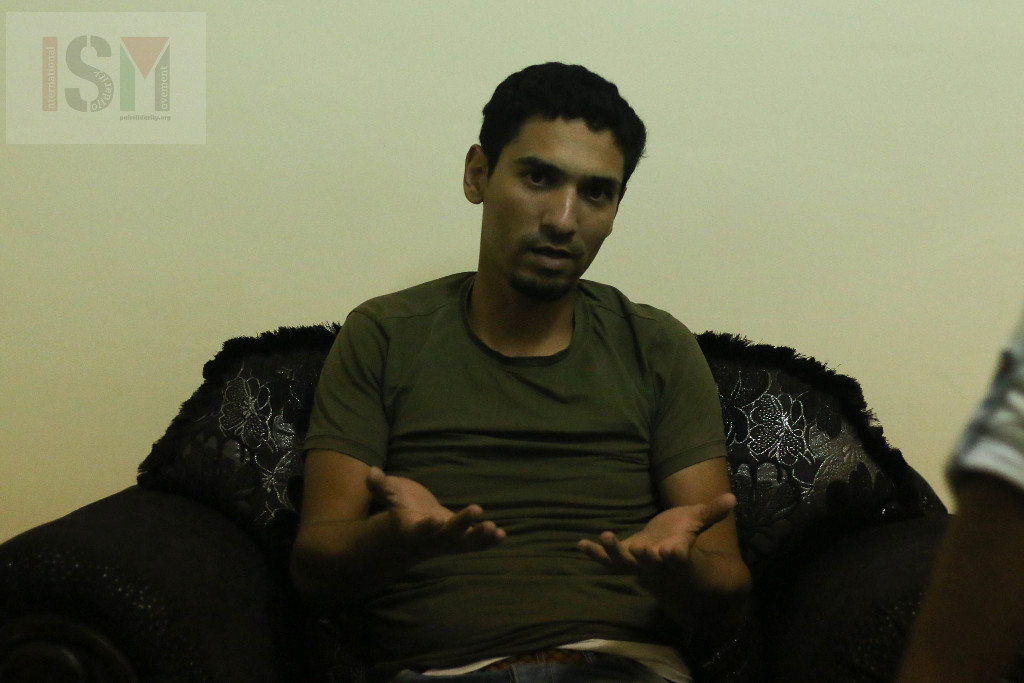Category: Features
-
Human rights activists evicted from Tel Rumeida apartment again
12th November 2015 | International Solidarity Movement, al-Khalil Team | Hebron, occupied Palestine Yesterday, international activists regained access to their Tel Rumeida apartment after being denied entry for a week. This morning at 8.45am another activist tried to enter the apartment but was prevented by soldiers, even after showing them the rental contract granting her…
-
Fighting back: an answer to the escalation
11th November 2015 | International Solidarity Movement, Khalil (Hebron) Team | Khalil (Hebron), occupied Palestine Since October 1st from Gaza to the OPT, casualties are rising almost daily as are injuries, arrests, raids and the outrageous closure of the Tel Rumeida neighborhood in Hebron along with segregated Shuhada Street by military order. A crisis within a crisis…
-
Punished for his work: medic Ahmad Nasser describes his recent arrest
November 10th, 2015 | International Solidarity Movement, Huwarra Team | Ramallah, Occupied Palestine In the early morning of November 2nd 2015, Ahmad Nasser was kidnapped by Israeli forces from his home near Ramallah. He was accused of attempting to kill soldiers by throwing stones and molotov cocktails, and was released without charge 15 hours later. He was…



